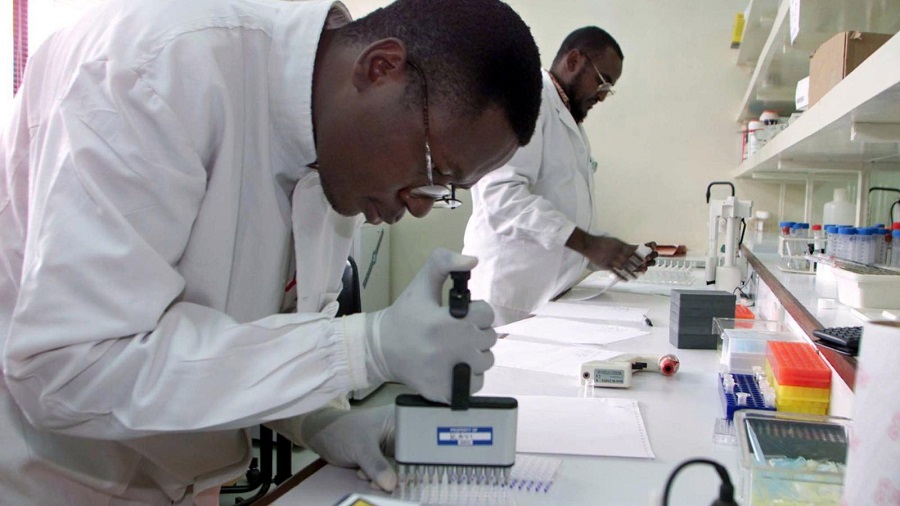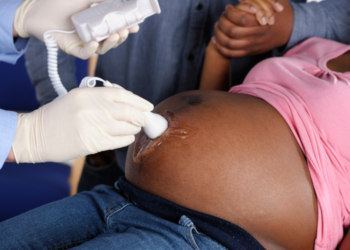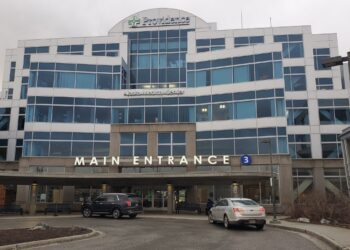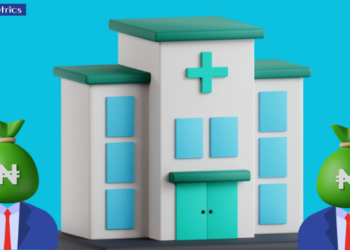The COVID-19 pandemic has highlighted several gaps that require immediate attention in the healthcare system in Nigeria and international investors are seeking to fill the void.
According to CNBC News, Nigeria lags behind relative to its African neighbors in terms of expenditure and access.
READ: How to access CBN’s healthcare grant
“For example, Nigeria’s public spending on health care amounts to just 3.89% of its $495 billion GDP (gross domestic product), according to the latest available figures from the World Bank, compared to 8.25% in South Africa and 5.17% in Kenya.
READ: DEAL: Nigerian based Helium Health completes $10m funding round
“According to a recent report from real estate consultancy Knight Frank, Nigeria would require 386,000 additional beds and $82 billion of investment in health-care real estate assets to reach the global average of 2.7 beds per thousand people.”
READ: Nigeria Health Infrastructure Development Bank Bill scales second reading at House plenary
What you should know
- According to the poll conducted by Knight Frank of 140 global investors in June, it found out that 80% were keen on investing in African health infrastructure in the light of the coronavirus crisis and basically on hospital-related real estate and operating companies in collaboration with domestic experts.
- Prior to the COVID-19 pandemic, there have been broad-based interests in African health-care assets. For example, the International Finance Corporation, part of the World Bank, partnered with the Investment Fund for Health in Africa-II (IFHA-II) in November 2019 to form a $115 million acquisition vehicle for health-care service businesses in the east and south of the continent.
- Also, some European development finance organizations such as Swedfund, the Swedish development finance institution are as well collaborating with IFHA, along with the likes of Pfizer and the Stichting Social Investor Foundation for Africa, whose sponsors include Aegon, Heineken, Shell and Unilever among others.
- It is to be noted that the spurred interest from investors is not unrelated to the Nigerian government issuance of N100 billion (about $254.6 million) in state credit facilities for health care, from pharmaceutical companies and product manufacturers to service providers, with the Bank of Industry(BOI) supporting with additional N50billion credit line.
READ: Medical Free Zone to save Nigeria about $1billion in annual medical tourism – NEPZA
READ: Ministry of Health to launch electronic system for National Health Insurance Scheme
What they are saying
According to Hafeez Giwa, Managing partner at HC Capital Properties (investors in health-care assets in Nigeria):
- “There is a very compelling opportunity for the development of world-class healthcare facilities across Africa, but especially Nigeria.
- “Most of the public hospitals here were constructed over 40 years ago and only a handful have received any investment since then.
- “On the one hand, there are local institutional investors and local pension funds that, in Nigeria’s case, are Naira investors and do not have any concerns about currency risk.
- “On the other hand, there are development impact investors and institutions that are excited by the prospect of delivering high-quality healthcare to lower- and middle-income Nigerians.”
READ: Flying Doctors to raise $1 billion to invest in African Healthcare
According to Tosin Runsewe, CEO at health-care investment firm, AfyACare Nigeria:
- “Obligatory health insurance for federal employees would see insurance costs lowered and the percentage of health-care costs covered could rise to between 20% and 30% by 2030.
- “If we could attain a critical mass of 40 million to 60 million Nigerians with healthcare cover, the cost of this treatment could be met through health insurance premiums of around only 20,000 Naira ($50) a year, half the current average cost.
- “There is an array of opportunities for investors in private primary healthcare clinics that can provide services at an affordable cost.”
READ: Benefits of having an immutable ledger to the healthcare system
Why this matters
Nigeria spends over $1 billion per year for outbound health tourism especially among wealthier Nigerians due to inadequate domestic access.
Making our health care delivery system work more effectively and efficiently would, to a large extent, save this huge haemorrhage and conserve the country’s fast depleting foreign reserves.
READ: CBN holds N30 billion NHIS funds in spite poor coverage of scheme
Access to comprehensive, quality health care services is important for promoting and maintaining health, preventing and managing diseases, reducing unnecessary disability and premature death, and achieving health equity for all Nigerians.






















